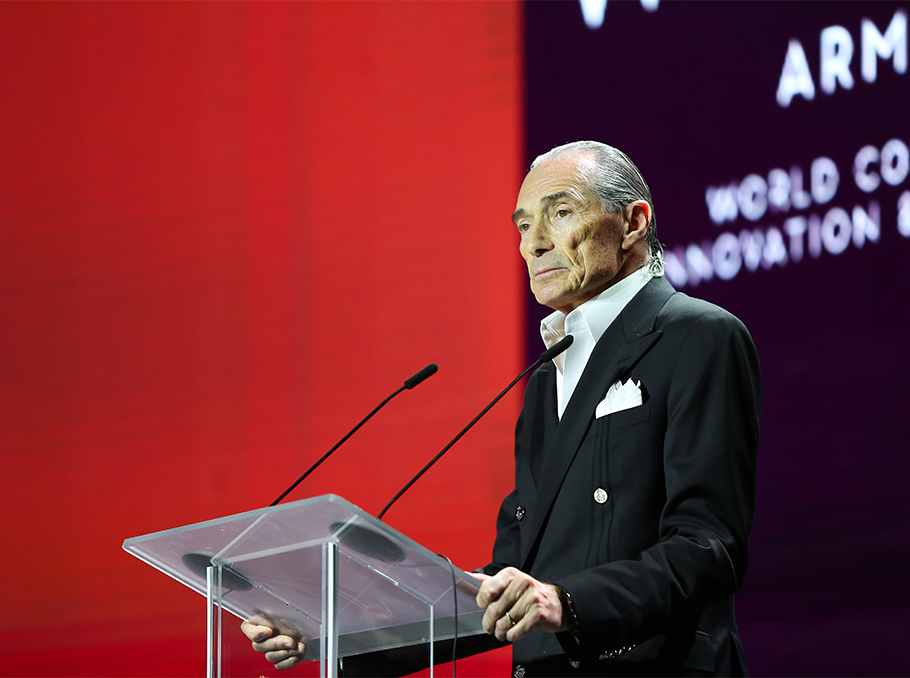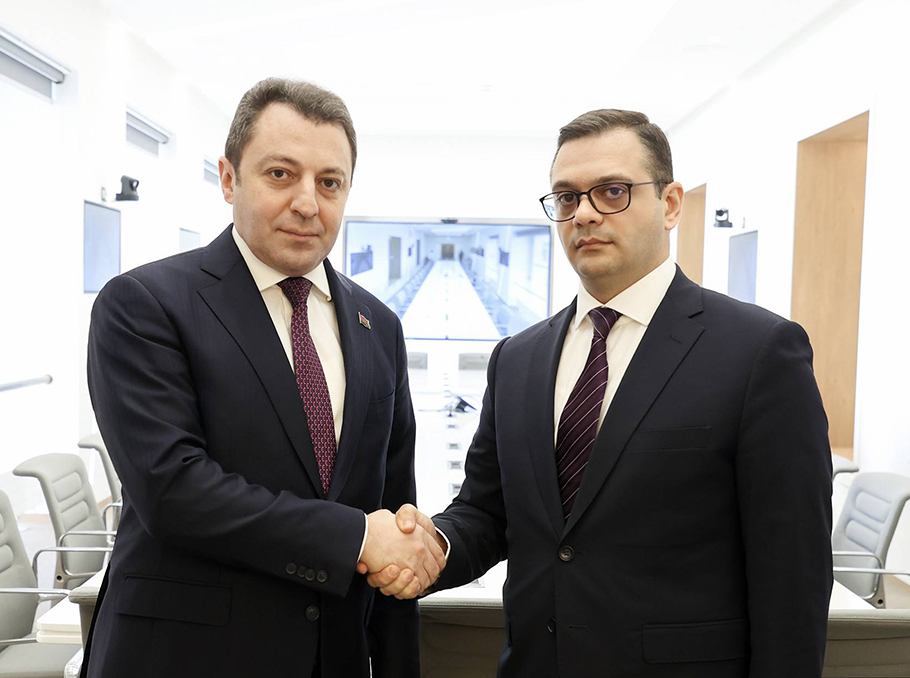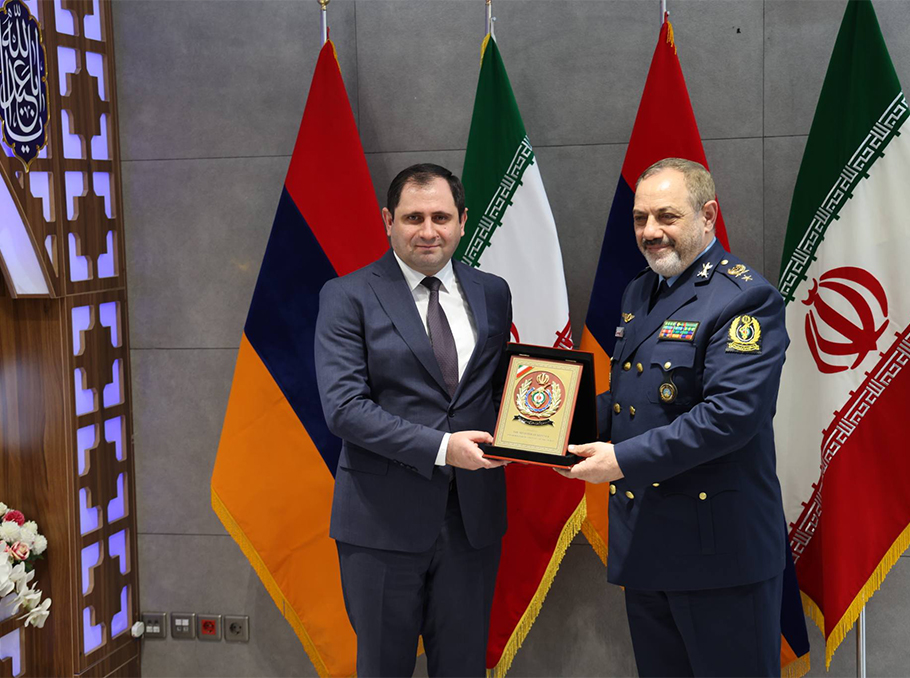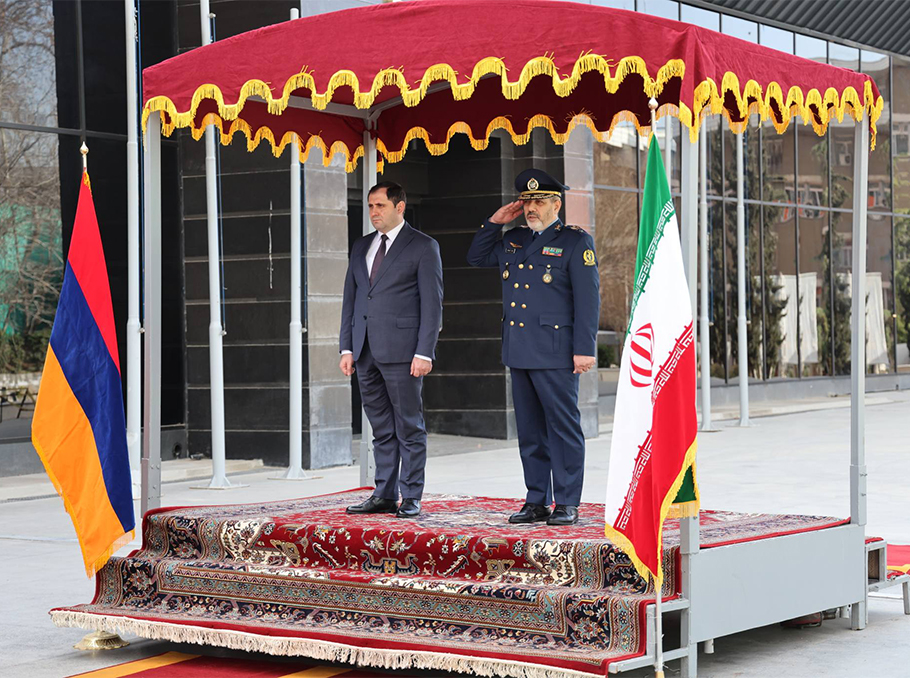One of the speakers at The World Congress on Innovation and Technology (WCIT) held in Yerevan in October 2024 was the former CEO of MGM Studios, Alex Yemenidjian.
Below is the transcript of his speech.
I have never been to a technology conference, and I know absolutely nothing about technology. But I'm still very excited to be here today, because I don't really view this as a technology event or a business conference. I view this conference and you, the next generation of Armenians, as critical to the successful future of our country.
Because entrepreneurship and innovation are the keys to a bright future for Armenia, I think that venture capital, especially in technology, is the match that we'd like to fire and turn Armenia into an idea factory. When I see a group like this, I see an obsession with learning and a can-do attitude that makes me very optimistic about the future of our country. I see a start-up culture in a young, smart, and hungry generation with intellect and with an attitude that is far superior to my generation of Armenians.
Actually, I think that my generation of Armenians was quite disappointing. So it's really very exciting to me that you, the next generation, is so different than mine.
They say that good judgment comes from experience and experience comes from bad judgment. So while I was gaining experience exercising a lot of bad judgment, I got lucky that I met Kirk Kerkorian. And then I got even luckier when he asked me to work for him.
It started with me doing some tax planning for him and then buying and selling companies. Then running MGM Resorts in Las Vegas. And finally, running the MGM Motion Picture Studio in Los Angeles.
And I learned some great lessons along the way, both business lessons and life lessons. The business lessons were very valuable, but the life lessons were priceless. I learned from him that character matters. Character is who you are. Character is what you do when nobody's watching. And Kirk had plenty of character. Once he asked me to sell the Desert Inn Hotel on the Las Vegas Strip, and I was introduced to a Japanese group. I met with them, we negotiated and agreed on the price, and we were going to get together the following week and start documenting the transaction. A few hours later, I get a call from a Fortune 500 company offering several million more dollars, much bigger money. So I called Kirk and I explained the situation to him. And he said, did you give your word to the Japanese? I said, well, we don't have anything in writing. And he said, I didn't ask you if you have anything in writing. Did you give your word to the Japanese? I said, well, I suppose I did. And he said, then why are you calling me? So the moral of the story is that his reputation was not for sale at any price, no matter how high the offer was. As you all probably know, Kirk was a very charitable person. In addition to what he donated during his lifetime, 100% of his estate went to charity.
And I learned a couple of lessons from him about charity. The first lesson is that charity is a one-way street. You must give without expecting or receiving anything in return. When I was still very young and didn't know that you don't ask stupid questions when you're talking to Kirk, I asked him one day - Kirk, you give so much money and people want to recognize you and name buildings after you. Why don't you ever accept that? And he said, because if I get any recognition in return, it's no longer charity, it's a transaction.
The second thing that I learned from him about charity is that the donation must be big enough to make a difference. It was much, much tougher for me to ask him for $50,000, let's say, for a research project than to ask him for 20 million or 50 million for education or healthcare or to build homes in Gyumri after the earthquake. His first question to me was always the same.
“Are you sure that's enough?” So to catch his interest, it had to be big, it had to be meaningful, and it had to make a difference. He didn't like fiddling in the margins by doing a little thing here and another little thing there.
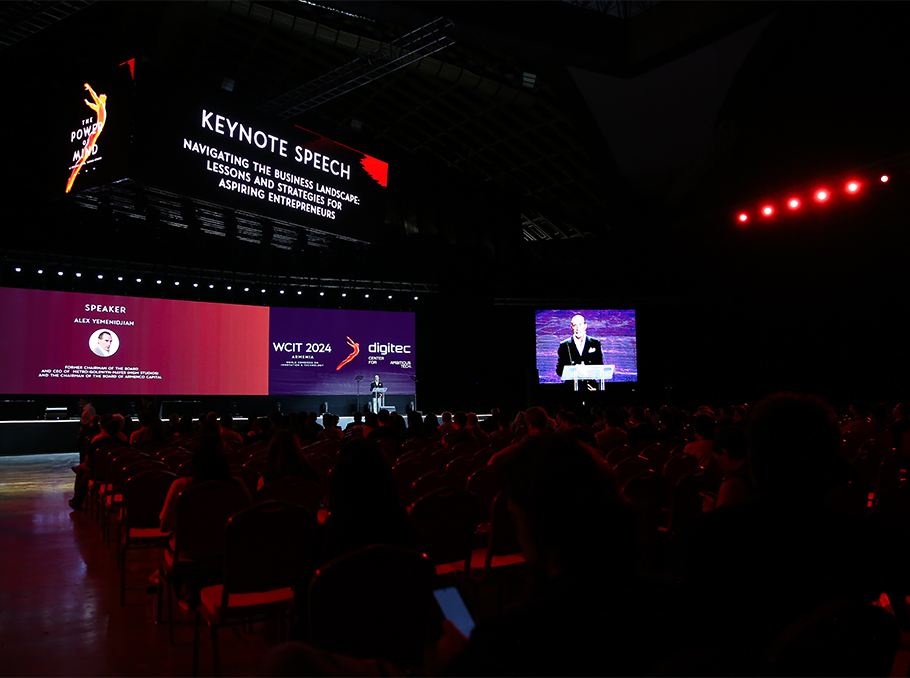
Photo: WCIT 2024
And as you will see later, that same theory applies to his business. He would call me at night and say, how much money do I have to pay so I don't have to show up to the deposition tomorrow morning? Or he would settle a case that we were going to win. And I would say to him, Kirk, why are you paying millions and millions of dollars to settle a case that we're going to win? And he said, because I don't want to spend the next five years of my life in depositions and talking to lawyers and going to court. He said, time is worth more than money. Didn't make sense to me at the time, but now I'm old enough to understand it.
Finally, I learned from him the importance of being humble. While I was at MGM Studios for six years, we produced approximately 150 movies. And Kirk could have come to the screening room at the theater, at the studio, and watched any of those films for free. But instead, he never came once. He went to the theater like everybody else on Saturday night. He stood in line, he bought a ticket, and he saw the movies that he owned himself. So the moral of the story is don't use your power for something insignificant. It makes you look small. And Kirk treated everybody the same, regardless of their position. We used to play tennis at the Desert Inn Hotel, and once in a while, Robert Redford would show up to play tennis. And one day, Robert Redford said to the tennis pro - I would love to meet Kirk Kerkorian someday. Well, as it turned out, Kirk came to play tennis the following day, and the pro introduced him. A few minutes later, Robert Redford walked on the tennis court with his head down, totally dejected.
And the pro said, what's the matter? And Redford said, I can't believe it. He didn't recognize, he didn't acknowledge the fact that I am the great Robert Redford. And the tennis pro said, you don't understand. Kirk is gonna treat you exactly the same way that he's going to treat that man behind the desk.
Clearly, the power of moral example can be much greater than the power of money. Now for the business lessons. The first thing that he taught me when I started working for him is never to take business advice from a lawyer. He said, understand the law, but make your own business decisions. But very importantly, I learned from him the difference between system one and system two thinking. Let me explain.
This is from a book called “Thinking Fast and Slow” by psychologist Daniel Kahneman. Briefly, system one thinking is fast, instinctive, emotional, and unconscious. An issue comes up, and you react and you make a decision right away. System two thinking, on the other hand, is slow, deliberate, very calculating, logical, and very conscious. An issue comes up, and you take your time, even days if necessary, to consider all possible outcomes before making a decision. Now as you can imagine, system one thinking can result in making a lot of mistakes. I know because I made more than my fair share of bad decisions using system one thinking. I wish I had known about this book earlier. Or I wish that I had met Kirk earlier, because decades, many decades before this book was written, Kirk had already mastered system two thinking.
Of course, he didn't even know that the book exists. But this is why he saw every angle of an issue and saw how a particular decision would impact everything else and everyone else. And this is why he could see around corners.
He would spend a lot of time thinking deliberately and with focus. And I would always wonder how it was possible that he always came up with the right answer. We would have a meeting to discuss an issue, and it would usually end with him saying, let's sleep on it and discuss it again tomorrow. And it was amazing how much more clearly we saw things the next day. Many times, I would wonder why he made a certain decision that seemed totally crazy to me at the time. And then, a few months later, it would be clear to me that he made the only possible correct decision.
I lost count of how many times I felt silly not being able to figure it out myself. But then again, I was up against Kirk. Many years before I started working for him, Kirk was involved in a major negotiation. And he had to make a very meaningful decision, on the spot. He excused himself from the meeting, went down the elevator, walked around the block three times, came back, and gave his decision.
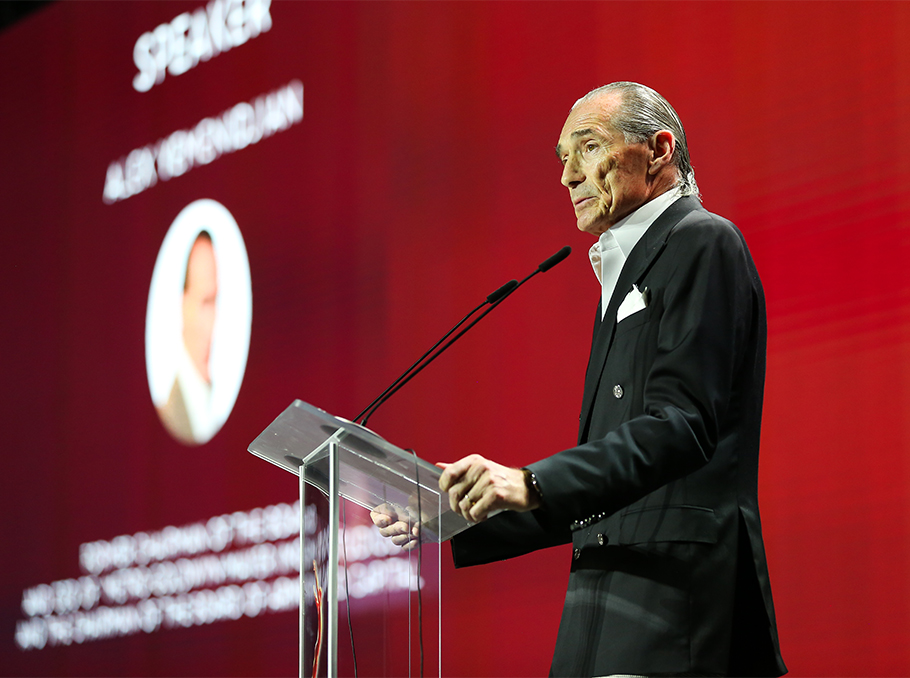 Alex Yemenidjian
Alex Yemenidjian Photo: WCIT 2024
Laser-like focus is a huge competitive advantage, especially if you want to use system two thinking. I learned from him never to take the last step to get a dollar off the table in a negotiation. Excuse me, when I asked him why, he said, because you'll be seeing all these people again in your life.
Once he assigned me this very delicate task of terminating the CEO of one of his public companies. So I met with the CEO and his lawyer and negotiated a settlement. And everybody was happy. Two days later, Kirk called me and said, did you settle the case? I said, yes. He says, how much did you pay him? I told him, and he said, it's not enough. And I said, Kirk, the CEO is happy, his lawyer is happy. And he said, I don't care, I'm not happy. Go back and give him some more money. So I did. I also learned that you must be confident and go big, or don't do it at all.
And Kirk had plenty of confidence. Again, in one of those early times when I was young and naive and didn't know to ask stupid questions, we were walking to lunch one day, and I said, Kirk, you know, it's sort of conventional wisdom and they teach you in school that you have to diversify your investments. Yet I see that your entire net worth is tied up in two companies.
And without missing a step or a beat, he said to me, Alex, diversification is for people who are not sure about what they're doing. I wish I had that kind of confidence. But the ultimate story of Kirk's confidence is when he was up against Howard Hughes.
In the late 60s, Kirk was building the International Hotel in Las Vegas, which at the time was the largest hotel in the world. Howard Hughes owned seven other properties on the Strip, and he didn't want Kirk building it. So Howard Hughes wrote these very longhand instructions to his right-hand man as to how to intimidate Kirk and how to pressure him not to build the International Hotel.
I actually read the letters. And Howard Hughes was a very powerful man at the time. And Kirk never blinked. And Howard Hughes was later quoted as saying that Kirk Kerkorian was the only man that I was never able to either buy or break. I also learned that common sense is actually not very common. Kirk didn't have a formal education, but he had more common sense than anybody I've ever met. His common sense was a lot more valuable than a degree from an Ivy League university.
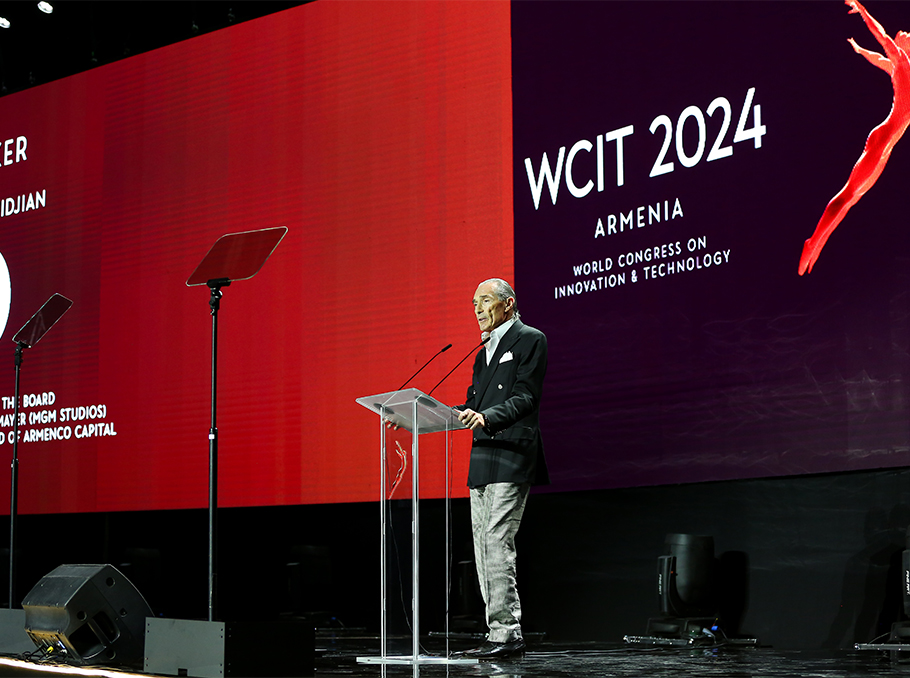 Alex Yemenidjian
Alex Yemenidjian Photo: WCIT 2024
I learned that the most important question in business is “why”. If you know “how”, you'll always have a job. But if you know “why”, you will be the boss. Finally, the words “I don't know” or “I'm not sure”, were never acceptable answers to Kirk Kerkorian’s questions. So I had to learn the true meaning of excellence, including having to anticipate every possible question and actually know the correct answer. And I fell short many, many times. I was always out of my comfort zone, which is where all progress takes place. If you're in your comfort zone, you're actually accomplishing nothing. I learned that excellence literally means providing something that is the best, not just something that is better than most.
You have to recognize the difference between adequate and excellent, and you just can't compromise. So whether it's with Kirk Kerkorian or generally in this fiercely competitive world, good enough is just not good enough. To attain excellence, you must care more than others think is wise. You must risk more than others think is safe. And you must dream more than others think is practical. And to attain excellence, attitude and motivation are far more important than IQ.
The problem is that, just like common sense, you can't buy it, you can't learn it, and you can't copy it. You either have the right attitude and motivation, or you don't. There are three types of people in this world. Those who make things happen, those who watch things happen, and those who wonder what happened. You have to decide which category you wanna be in. And while you're deciding, remember that reputations are made by doing things that can't be done, and actually doing them.
Every one of us can lift ourselves into the ranks of the extraordinary, because success is not a matter of chance, it's a matter of choice. Now, because attitude and motivation are so important, and yet cannot be taught, I wanna leave you with this story.
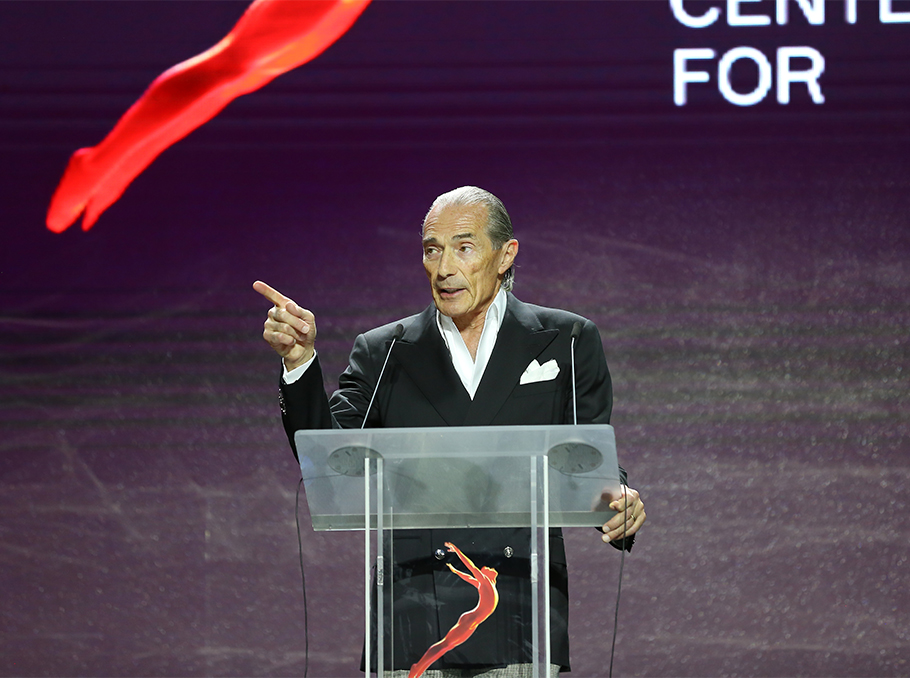 Alex Yemenidjian
Alex Yemenidjian Photo: WCIT 2024
There was a carpenter who was ready to retire, and he told his employer, the contractor, of his plans to leave and spend more time with his wife, and enjoying his grandchildren. He was really a very excellent employee, so the contractor was very sorry to see him go, and asked him if he would please build just one more house as a personal favor to the contractor. So the carpenter reluctantly agreed, but in time it was clear that his heart was not in the work. He resorted to shoddy workmanship and used inferior products. It was really an unfortunate way to end a very dedicated career. When the work was finished, the employer came to inspect the house, and handed the front door key to the carpenter. This is your house, he said, my gift to you. The carpenter was shocked. What a shame, if he had only known that he was building his own house, he would have done a much better job. And so it is with us. We build our lives one day at a time, often putting less than our best into the building. Then with a shock, we realize that we have to live in the house that we have just built. If we could do it all over again, we would do it much differently, but we can't go back.
You are the carpenter. Your attitude and the choices you make today will build the house that you will live in tomorrow. So please build wisely.









